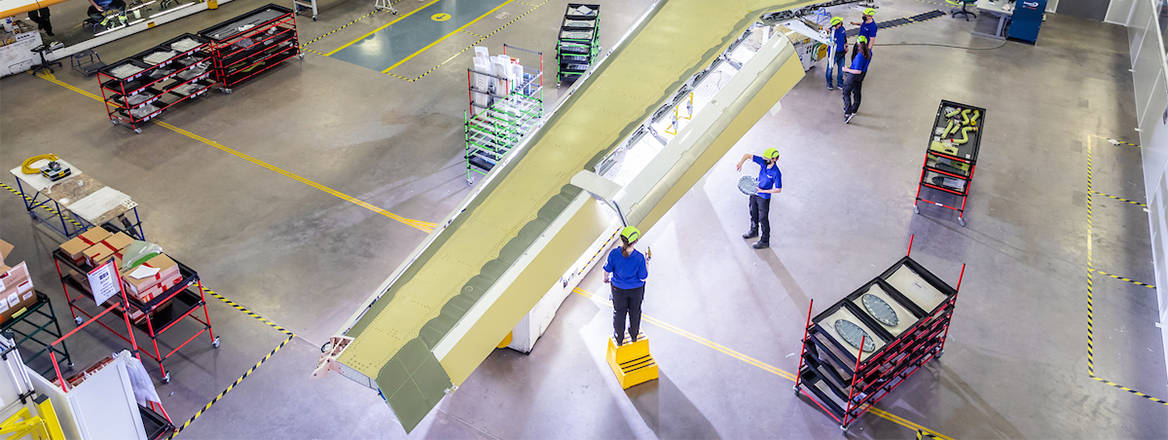The Defence Industry in Northern Ireland: Leveraging Untapped Potential
In light of UK policy pledges to give defence a more regional footprint, this paper explores the extent of defence activity in Northern Ireland, a region that exhibits considerable defence potential yet has benefited only marginally from defence expenditure in recent years.
Since 2015, the Ministry of Defence (MoD) has been explicitly directed to contribute to UK prosperity and, since then, it has consistently emphasised that the whole of the country should benefit from defence spending. The defence industry is economically important to many areas of the UK, and defence policy must be consistent with an industrial strategy that promotes jobs and skills throughout the UK’s regions and nations. In light of these policy pledges to give defence a more regional footprint, this paper explores the extent of defence activity in Northern Ireland (NI), a region that exhibits considerable defence potential yet has benefited only marginally from defence expenditure in recent years.
The paper finds that:
- NI is a long-contested region of the UK and experienced decades of violent sectarian conflict between the late 1960s and the late 1990s. The shadow of this conflict, some local political parties’ antipathy to the defence industry and a historical trend towards unequal regional MoD spending have considerably affected the defence demographics of NI today, resulting in little work being located there. However, a series of contextual and business changes are underway involving three prominent businesses with considerable defence potential: Thales, an experienced defence-focused business unit; Harland & Wolff, a heavy engineering firm at the centre of the National Shipbuilding Strategy’s aim of regenerating the shipbuilding sector; and Spirit AeroSystems, a high-technology aerospace company looking to expand into the defence space.
- In addition to these three larger companies, the NI defence sector comprises many small to medium-sized enterprises (SMEs) operating predominantly in the digital manufacturing and technology sectors. Despite the customer focus and agility that they add throughout the defence supply chain, these smaller companies still feel that defence is a particularly difficult market to access. They experience several difficulties, some largely common to small firms across the country and others peculiar to the NI context.
- Another key industrial asset in NI is its civilian aerospace legacy. The relevance of this sector is enhanced by the growing inter-relationships between the civil and military sectors. In an era where information capture and analysis are central to defence capability, surveillance and communications systems are often deployed on and in civil aircraft. In the uncrewed air systems domain, such systems are increasingly used for civil and military purposes. Thus, NI suppliers with certified qualities should explore and be considered for work in both the defence and civil sectors.
- In addition to a strong civilian aerospace pedigree in the region, defence can also leverage NI’s vibrant cyber security sector. In the years since the Good Friday Agreement, NI has become a hotspot for cyber-security innovation, with cities such as Belfast and Derry/Londonderry exhibiting high technology specialists and consistently attracting domestic as well as overseas investment. Through its cyber-security clusters and academic centres of excellence, NI has developed beyond the average UK science and technology capabilities, nurtured science, technology, engineering and mathematics skills and established leading R&D programmes. These activities are the basis for generating military and security capabilities and other tangible and intangible assets, which are themselves levers of national power and influence.
In all, NI exhibits considerable defence potential, with three prominent businesses at the top of the supply chain that can, together with the extensive range of SMEs in the region, create an opportunity to promote NI, not as part of the problem set of UK defence and security, but as a valued contributor to its management and solution. The MoD should be monitoring the situation and looking for further opportunities to support local stakeholders, as the current UK government ambition that the whole of the UK should benefit from defence activity is clearly not being met. This should be a particular concern of those in the MoD focused on prosperity and also be in the consciousness of all involved with defence spending with the private sector.
WRITTEN BY
Isabella Antinozzi
RUSI Associate Fellow, Military Sciences
Trevor Taylor
Professorial Research Fellow
Military Sciences



